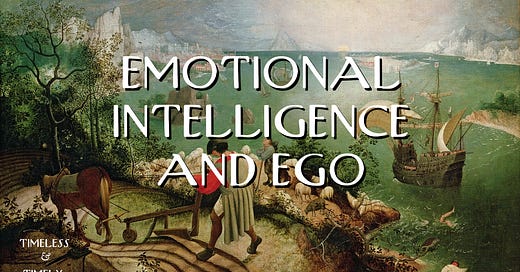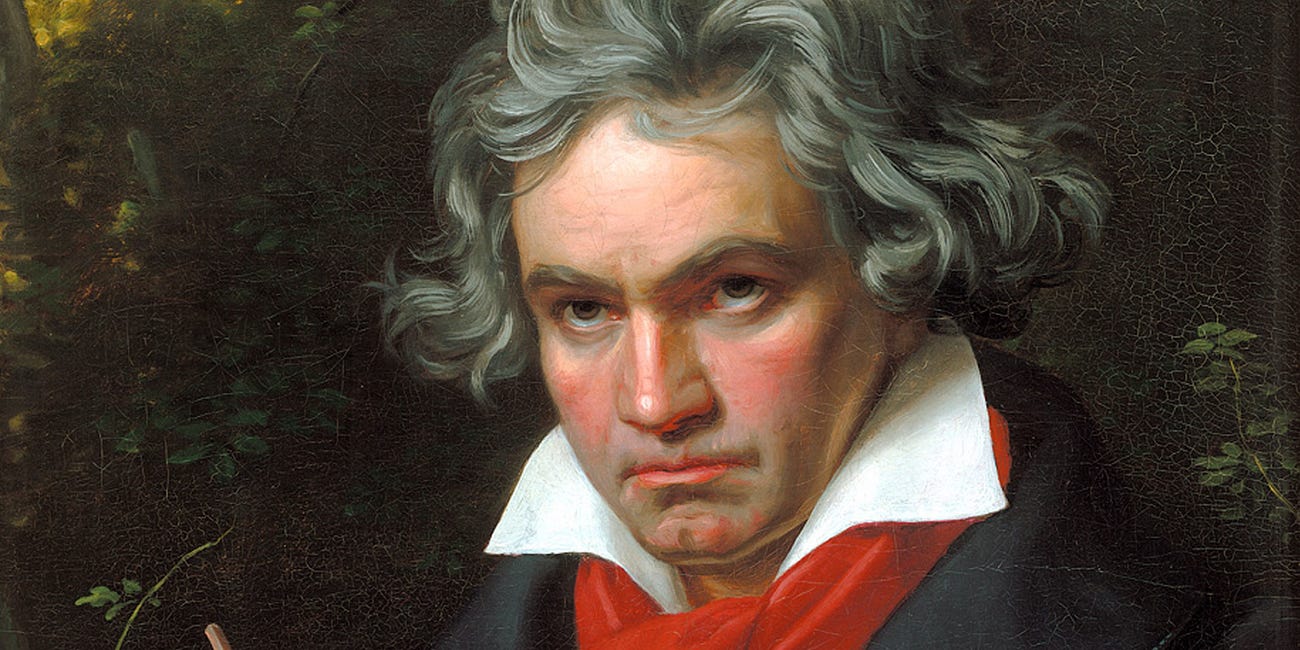Emotional Intelligence and Ego
The emotionally intelligent leader knows how to contend with their ego.

Last week, we explored how reflection is the curative for an otherwise noisy and busy world.
Serenity Now
I’m fascinated by words. I enjoy creating turns of phrase (like saying how the legal department is the one that puts the ‘no’ in innovation), listening to those who know how to wield the English language, and the discovery of odd and arcane words. I came across…
And now, following on the heels of listening with empathy, let’s look at something that we mentioned in passing there: “the intersection of disinterest and ego.” Namely, hubris.
The Liberation of Listening
We recently reflected on silence and tranquility, and what we can do with time without distractions. The reaction to that was universally positive (which didn't surprise me). Taken to an extreme, though there’s another side to it to…
History and literature are rife with examples of hubris, or excessive pride and arrogance.
Ajax, title character of Sophocles’ play of the same name, thinks he does not need Zeus’ help due to hubris.
Oedipus thinks he can outrun his destiny.
In Mary Shelley’s Frankenstein, Victor Frankenstein thinks he can control life.
Pride is widely viewed as a tragic flaw — one with moral implications. Following the ancient Greek tradition, the seven deadly sins (one of which is Pride) are part of the Christian teaching.
Pride is considered the original and worst of the seven. It is dangerously corrupt selfishness; the putting of one’s own desires, urges, wants, and whims before the welfare of other people.
In other words, it’s what we might more commonly refer to as ego.
It seems that more often than not, the ego-driven, ambitious, obsessive visionaries — call them what you will — are celebrated and rewarded. And to a certain degree that’s valid. For without drive, ambition, and self-confidence, it’s hard to stand out.
But the kind of ego I’m talking about isn’t about that kind of motivation. It’s about the misguided and blind ambition — twisted, selfish, arrogant self-belief: when the visionary won’t tolerate naysayers or questions. When they seem to be detached from reality and think they can do no wrong.
Think Travis Kalanick (Uber), Adam Neumann (WeWork), or Elon Musk (Twitter/Tesla/SpaceX).
There’s a sense of entitlement and control that individuals like this bring to the table. And it’s damaging to everyone around them, including the entities they’re trying to build.
Entitlement says, “I deserve this by virtue of who I am, not what I did.” (“And you don’t” follows logically.)
Control says “My way or the highway,” and drives away the very people who might be in the best position to help.
And while you’re probably not at the level of ego that any of the above are, there are times when you can feel your ego being fed — like when you get a promotion, or when one of your tweets, videos or images goes viral, or when you step off of a stage to thunderous applause.
We’re all susceptible to our egos being fed by these moments. The trick is not to let it get to your head.
So what’s the best way to address our own egos as leaders?
The Opposite of Hubris
What’s the opposite of hubris?
If you said humility, congratulations. I don’t have a prize for you, but you should feel good about yourself.
The emotionally-intelligent leader can understand how important it is to battle the constant barrage of ego and achieve humility. Four key elements of emotional intelligence (EI or EQ) are:
Self-awareness
Self-discipline
Empathy
Relationship management
Self-awareness comes with reflection. Taking the time to assess what we do, how we think, and what we’ll do next is part of this exercise.
Self-discipline or self-management is about controlling our reactions, our temperament.
Empathy is being able to understand how others may be feeling, which leads to managing our relationships.
Your EQ should fundamentally include the understanding that any leadership role is a matter of servant leadership. You are called to serve others with your talent and skills: customers, board members, your direct reports whom you're training. It’s an exercise in humility.
And along the way, you’ll run into some challenges. You’re going to find that you need to listen more. You’re going to make mistakes.
And as you do, remember this: three of the most humbling words a good leader can say are:
Keep reading with a 7-day free trial
Subscribe to Timeless & Timely to keep reading this post and get 7 days of free access to the full post archives.






